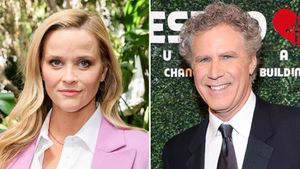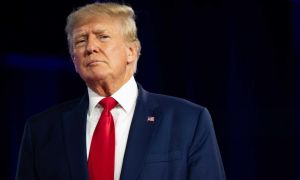The Catholic Church in the Philippines is grappling with significant accountability issues as allegations of sexual abuse against clergy members resurface, particularly after the release of recent data from the US-based watchdog BishopAccountability.org. This report, which lists at least 82 priests and religious brothers accused of sexually abusing minors, has ignited calls for greater transparency and action from Church authorities.
Cardinal Pablo Virgilio David of Kalookan, president of the Catholic Bishops' Conference of the Philippines (CBCP), has publicly reiterated the Church's commitment to accountability, stating, "The Church, being a human institution, is not exempt from sin and corruption. Admittedly, lack of accountability compromises our moral and espiritual authority." His remarks come at a pivotal moment, coinciding with the onset of the three-day "Zero Tolerance" summit aimed at addressing clergy abuse and institutional oversight.
During the opening of the summit held from January 31 to February 2, 2025, Cardinal David emphasized the importance of reporting allegations of abuse. He urged the faithful and the public to bring any complaints against clerics forward, whether to civil authorities or to the Church itself. “We need the help and participation of our laypeople, including professional journalists, who are our allies in the quest for truth and the battle against disinformation,” he remarked. This statement highlights the CBCP's desire to align more closely with Pope Francis's vision of greater synodality and accountability within the Church.
Following the revelations from BishopAccountability.org, specific allegations against clergy members have come to light. For example, three priests incardinated within the Archdiocese of Cebu—Benedicto Belciña, Raul Ejares, and Leo Operiano—remain active following their alleged misconduct. The Archdiocese confirmed on January 30, 2025, their previous legal and ecclesiastical processes allowed for their return to ministry, igniting widespread public discourse about the adequacy of such measures.
Some members of the Catholic community have expressed their concern vocally online. Carmel Grace, a practicing Catholic, stated, "Please hold them accountable if they have become harmful to society." This sentiment is echoed by many as the clergy faces increasing scrutiny and calls for justice. Critics of the Church's internal processes, such as those voiced by Roy Deiparine, demand: "They should be held accountable like normal people." This growing demand for justice reflects public frustration with perceived injustices and the Church’s handling of these serious allegations.
Questions of accountability have intensified, particularly after San Carlos Diocese Bishop Gerardo Alminaza found himself apologizing for allowing two accused priests to celebrate Mass publicly. Alminaza admitted his lack of vigilance resulted in confusion and concern within the community and reaffirmed the diocese's priority on safeguarding children and vulnerable individuals. The bishop's accountability measures remain under scrutiny, especially as critics argue about the Church's hesitance to enforce stringent consequences on priest offenders.
Despite institutional efforts to safeguard communities, skepticism abounds concerning the effectiveness of these initiatives. Netizens and victims' advocates alike continue to question the integrity of the Church's internal investigations and the adequacy of clerical rehabilitation programs. “No such thing as a reformed sex offender priest,” Helen Domocol proclaimed, highlighting the challenge the Church faces overcoming its dark historical legacy of cover-ups and negligence.
The Archbishop of Cebu, Jose Palma, acknowledged the painful wounds inflicted by these offenses, noting, "Sexual offense of priests involving minors wounds the Catholic faith." While he affirmed the Archdiocese's commitment to justice and accountability, doubts remain about the true impact of ecclesiastical protocols on victims' healing and the broader ecclesiastical system.
Compliciting the situation, critics assert the necessity for legal accountability, urging authorities to intervene more aggressively against abusive clergymen. Parents and community members call for leadership from both civil and religious figures, demanding comprehensive strategies to protect children and hold offenders accountable.
This complicated mosaic of public opinion reveals the intense struggle between faith, accountability, and the need for healing. Advocates for survivors are relentless, insisting transparency must accompany the Church's acknowledgment of past wrongdoing. Meanwhile, Diocese actions, like the establishment of safeguarding offices and the push for educational programs, demonstrate potential steps forward, albeit with serious questions about their sufficiency.
The public's growing demand for reform reflects not just discontent with the Church's responses to clerical abuses but also highlights the necessity for collaborative efforts among laity, clergy, and civil authorities. Within this complex environment, Cardinal David's call for unity and transparency stands as a beacon of hope amid desolation.
Finally, the forthcoming summit aims not only to confront these longstanding issues within the Church but also to encourage open discussions about the gravity of child sexual abuse and the path toward healing for all involved. With such weighty expectations, the Church must act decisively to reclaim lost trust and maintain its moral authority amid mounting societal pressures.



